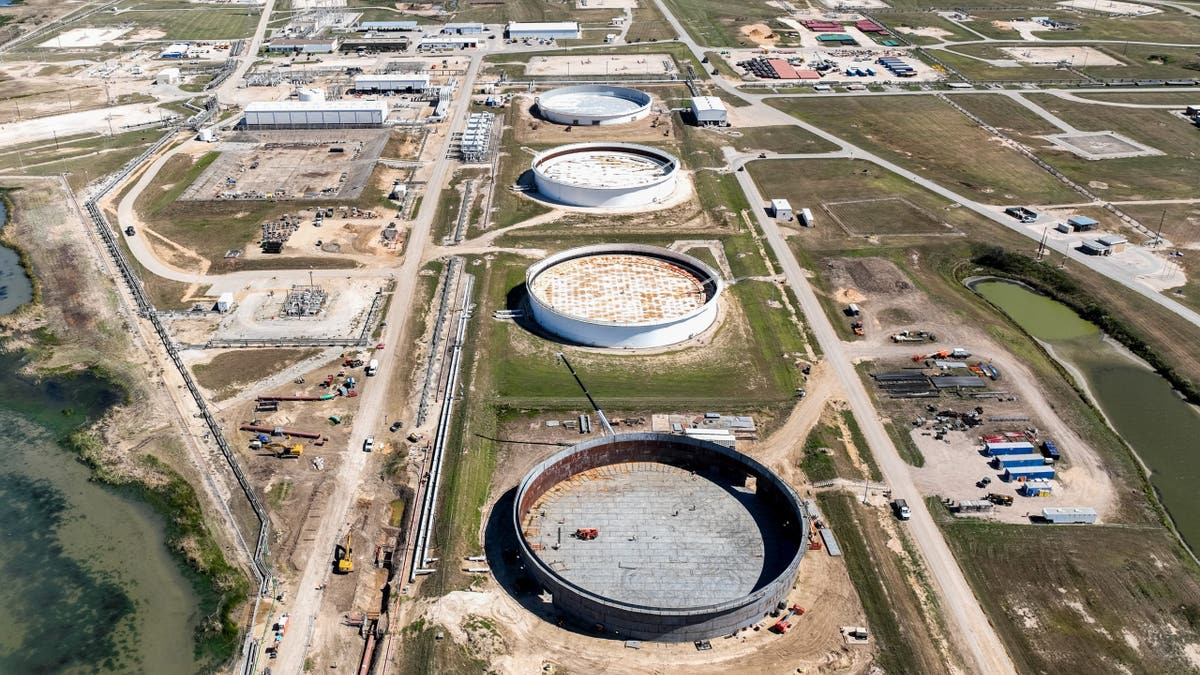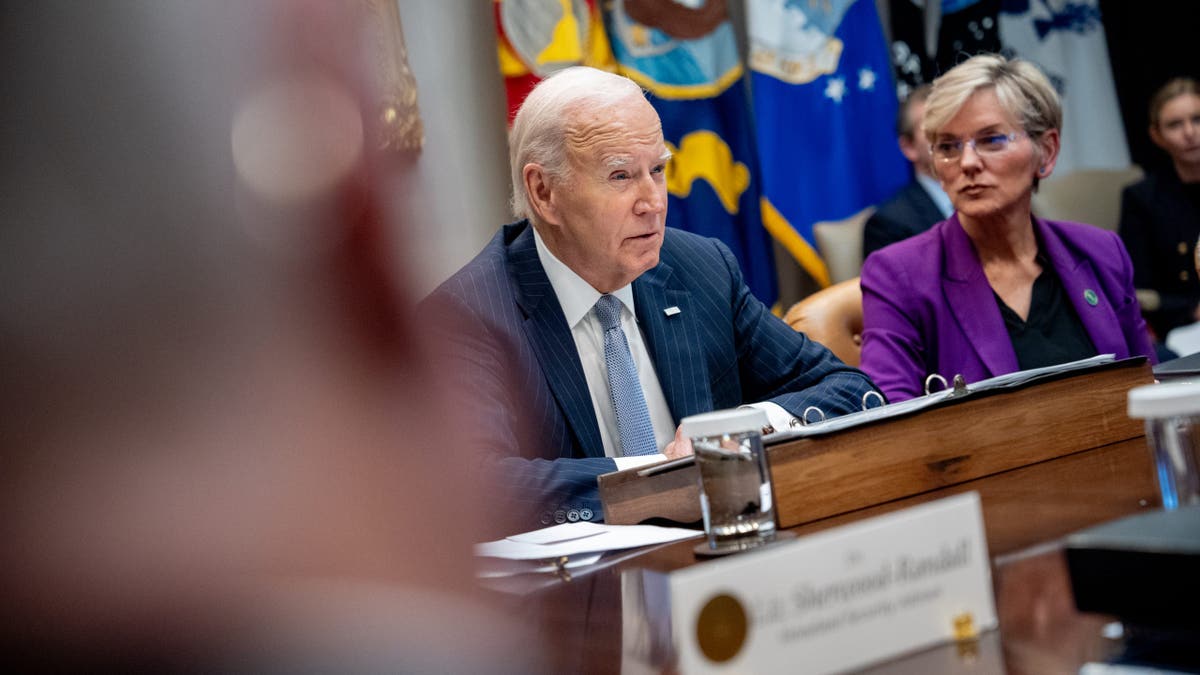The Energy Department announced the end of replenishing the nation's strategic oil reserves on Friday, which were depleted by nearly half under President Biden, and used the opportunity to praise the administration for the work it has done to maintain and replenish the stockpile.
However, as of Nov. 1, the U.S. Strategic Petroleum Reserves (SPR) inventory held just 387.2 million barrels of oil, according to the U.S. Energy Information Administration. That is compared to 638.1 million barrels that were in the SPR inventory when Biden took over the presidency from former President Donald Trump.
The major drop came from Biden's decision to flood the U.S. oil market with millions of barrels from the SPR to keep oil costs down following Russia's invasion of Ukraine. The decision to do so was frequently met with backlash from his critics who argued the move was "political" in order to keep gas prices down ahead of the election this month.
"The SPR for this administration was used as a piggy bank to lower oil prices," said Trishia Curtis, economist at the American Energy Institute.
TRUMP TAPS FORMER NEW YORK REP LEE ZELDIN TO LEAD EPA
"This is smoke and mirrors to make it look OK," added Phil Flynn, senior markets analyst at the Price Futures Group, according to Market Watch.

In an aerial view, the Strategic Petroleum Reserve storage at the Bryan Mound site is seen on Oct. 19, 2022 in Freeport, Texas.
Despite the drastic drop in SPR during Biden's tenure, Energy Department Secretary Jennifer Granholm lauded the Biden-Haris administration for "maintain[ing] the SPR as the world's largest supply of emergency crude oil" and for "putting the economic and energy security of the American people first," in a Friday press release from the Energy Department about the latest SPR purchase.
TRUMP TO INSTALL ‘ENERGY CZAR’ TO DISMANTLE BIDEN CLIMATE RULES: REPORT
"With the awarding of these contracts, DOE has fully utilized all funding allocated for crude oil purchases following the sale of 180 million barrels in response to the Russian invasion of Ukraine and secured 20 million more barrels at a good price for taxpayers," Granholm concluded.

President Biden, accompanied by Energy Secretary Jennifer Granholm, gives an update on the government's response to Hurricanes Milton and Helene in the Roosevelt Room of the White House on Oct. 11, 2024 in Washington, D.C. (Photo by Andrew Harnik/Getty Images)
However, for Energy and Environmental Legal Institute fellow and former Trump administration Environmental Protection Agency transition advisor Steve Milloy, the numbers do not add up.
"It's deceptive," Milloy told Fox News Digital. "They've only bought back one-third of what they let go. Now they're trying to say that they actually bought back more, or they put back more, but what they're counting is oil that's already in there."
TRUMP VOWS AT PENNSYLVANIA RALLY TO SLASH ENERGY COSTS, LIFT LNG PAUSE AND ‘FRACK, FRACK, FRACK’
Meanwhile, energy expert Chris Barnard, the president of The American Conservation Coalition, posited that it was "contradictory" for the Biden administration to claim it has been focused on U.S. energy security.
"It feels quite contradictory for them to tout that they're [replenishing the SPR], while at the same time saying that they want to end oil and gas," Barnard said.

President Biden listens as Iraqi Prime Minister Mohammed Shia al-Sudani speaks in the Oval Office of the White House on April 15, 2024 in Washington, D.C. (Photographer: Anna Moneymaker/Getty Images)
"It's felt like a bit of whiplash between Biden's comments on the campaign trail back in 2019 and 2020, where he even told some voters, ‘I want to end fossil fuels altogether.’ But then at the same time claiming credit for replenishing the SPR, at the same time canceling Keystone Pipeline, at the same time going and begging the Saudis to produce more oil and send it to America," Barnard said. "Their energy idealism has run up against energy reality."
CLICK HERE TO GET THE FOX NEWS APP
On Biden's way out of the White House, he has been imposing tighter environmental restrictions, including just this week, when Biden approved a new tax on methane emissions and implemented tighter restrictions on oil, solar and wind energy development across more than 6,500 square miles of federal land.
The Energy Department declined to comment for this story.









